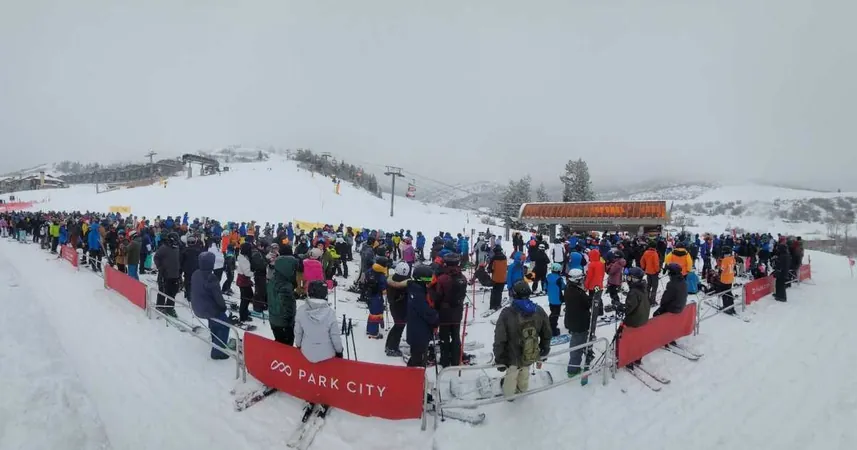
Skiers Unite in Class Action Against Vail Resorts Over Holiday Strikes at Park City
2025-01-10
Author: Wai
Overview of the Class Action Lawsuit
In a significant legal move, Christopher Bisaillon from Illinois has initiated a class-action lawsuit against Vail Resorts, representing thousands of skiers who purchased lift tickets for Park City Mountain during a disruptive ski patrol strike from December 27 to January 8.
Claims of Dissatisfaction and Financial Impact
Bisaillon, the lead plaintiff, claims that the experience provided did not match the premium pricing, which for many families can range between $10,000 to $20,000 for a ski trip to Park City. He recounted spending $15,000 for a week-long Christmas vacation only to ski fewer than 10 runs, having learned about the strike's impact only after arriving, one day into the walkout.
Details of the Strike and Its Effects
The lawsuit asserts that over the 13-day strike, less than 20% of the mountain's terrain was operational, resulting in painfully long lift lines—sometimes extending to three hours. Skiers were reportedly misled by Park City Mountain's digital trail maps, which advertised 30-minute waits that often turned out to be much longer.
Allegations Against Vail Resorts
Bisaillon’s filing emphasizes that Vail Resorts failed to adequately warn guests about the potential impacts of the strike, despite the Park City Professional Ski Patrol Association indicating problems in contract negotiations as early as December 16. A strike authorization was voted on December 14, and the unionized patrols walked out shortly thereafter, leaving the mountain severely understaffed with only about 20 safety personnel remaining.
Vail Resorts' Response to Staffing Issues
The situation became acute because Vail tried to mitigate the staffing issue by bringing in around 30 replacement patrollers from other locations, yet this response was insufficient during peak holiday traffic. Consequently, many guests experienced significant disruptions— a situation Vail later acknowledged in deleted social media posts.
Safety Concerns and Guest Reactions
As patrons faced the brunt of these challenges, reports emerged of ski enthusiasts ducking ropes to access closed runs, raising serious safety concerns. Local lodging businesses also noted a rise in cancellations as dissatisfied guests opted to leave early.
Legal Representation and Potential Damages
The plaintiffs seek damages beyond $5 million, represented by a coalition of attorneys from Illinois and Wyoming. Vail Resorts has opted not to comment on the ongoing litigation, leaving many to wonder how this legal action could impact future ski seasons.
Conclusion and Future Implications
As the stories of disgruntled guests spread, the legal ramifications of such a high-profile case could reverberate throughout the ski industry, potentially reshaping how resort operations manage labor disputes and customer experiences during peak times. Will Vail Resorts be held accountable? Stay tuned as this story unfolds.
 Brasil (PT)
Brasil (PT)
 Canada (EN)
Canada (EN)
 Chile (ES)
Chile (ES)
 Česko (CS)
Česko (CS)
 대한민국 (KO)
대한민국 (KO)
 España (ES)
España (ES)
 France (FR)
France (FR)
 Hong Kong (EN)
Hong Kong (EN)
 Italia (IT)
Italia (IT)
 日本 (JA)
日本 (JA)
 Magyarország (HU)
Magyarország (HU)
 Norge (NO)
Norge (NO)
 Polska (PL)
Polska (PL)
 Schweiz (DE)
Schweiz (DE)
 Singapore (EN)
Singapore (EN)
 Sverige (SV)
Sverige (SV)
 Suomi (FI)
Suomi (FI)
 Türkiye (TR)
Türkiye (TR)
 الإمارات العربية المتحدة (AR)
الإمارات العربية المتحدة (AR)